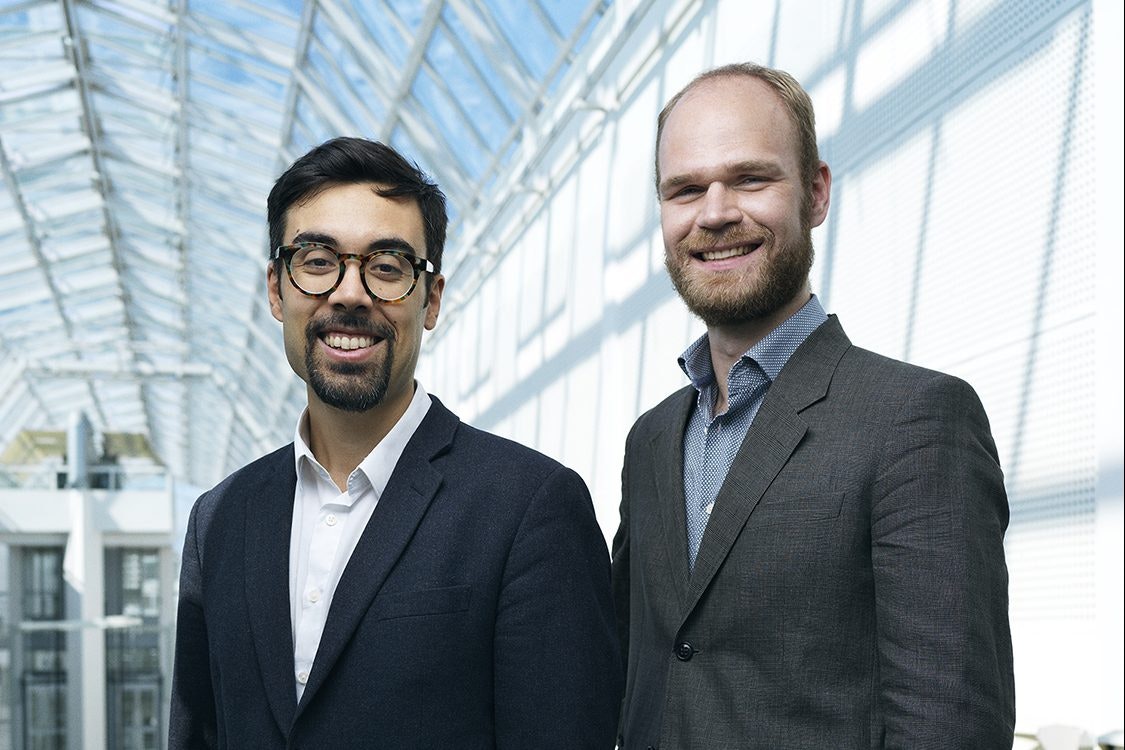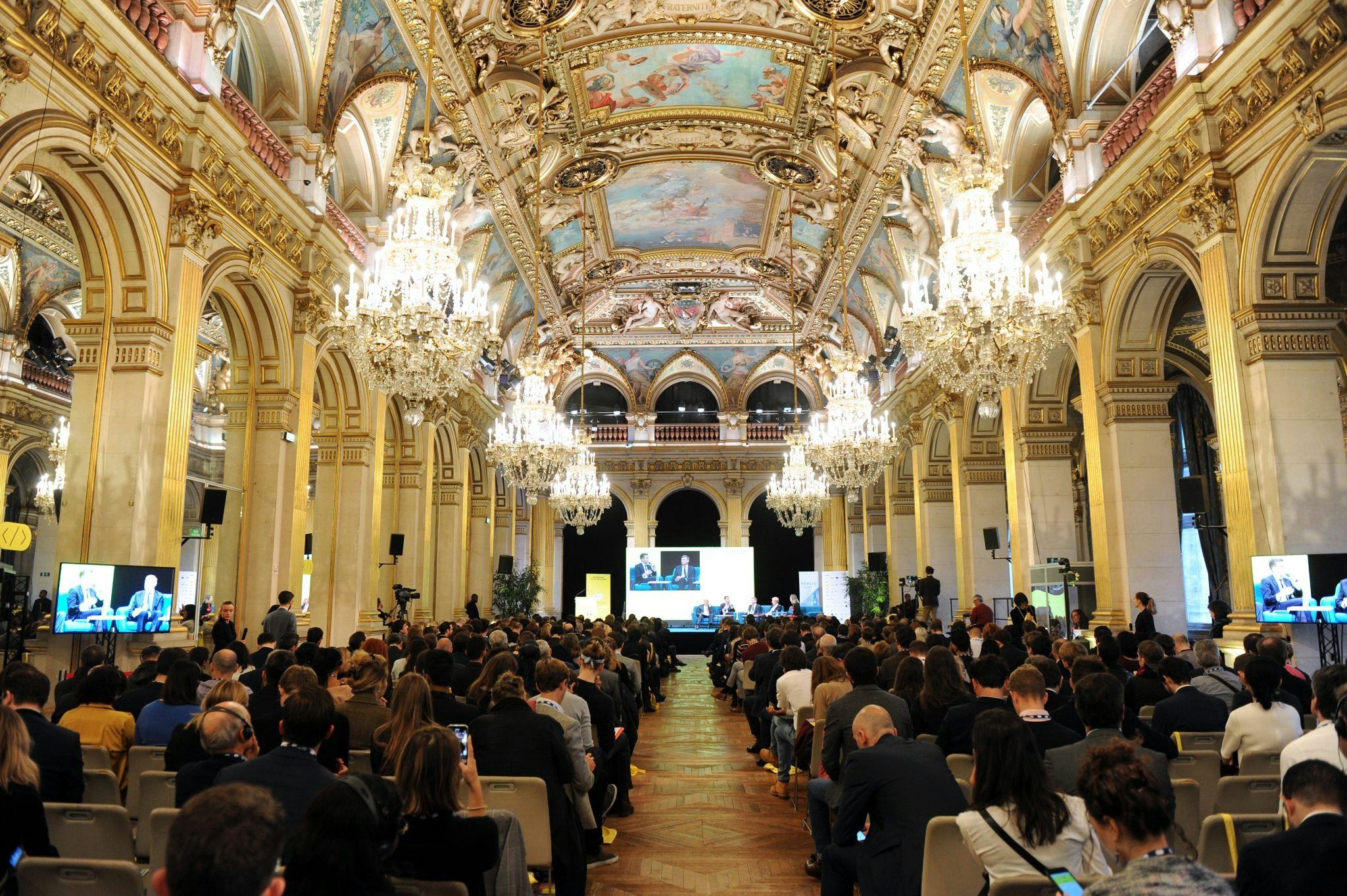Hundreds of millions of people across Europe are set to cast their vote over the coming days in the European elections, which run from Thursday to Sunday.
Many of them will use an online “questionnaire”, such as YourVoteMatters in the UK and several others elsewhere, to navigate through the complex world of European politics and find the party most closely aligned with their views.
But what if there was an artificial intelligence that could tell you how to vote instead?
AI will be used when making lots of different decisions, whether it is dating or in business. Why would we not use it in elections?
That was the vision of a side project that Swedish AI company Mavenoid, backed by Creandum and Point Nine Capital, started a few weeks ago.
“In the future, AI will be used when making lots of different decisions, whether it is dating or in business. Why would we not use it in elections?” cofounder Shahan Lilja says.
Mavenoid has created a new type of questionnaire which adapts to the user and attempts to give more accurate insights into what makes a voter truly tick. It has been used by 10,000 Swedes already.
Skewed towards the smaller parties
But the questionnaire has been met with mixed feelings by the people taking the test. It got to the point where the Mavenoid team raised worries about the AI itself and aired their concerns with political scientists.
The mixed feelings were mostly because the AI tool more often chose smaller parties instead of the parties already in parliament.
According to the political scientists, questionnaires which focus only on opinions often give populist or single-issue parties an advantage over the bigger parties.
There is a controversial aspect of this since the smaller political parties get a much higher percentage than one would expect.
In short, the AI is polarising and gives more weight to the political fringes.
“There is a controversial aspect of this since the smaller political parties get a much higher percentage than one would expect, like for example the party for animal rights. The reason is that we only look at how well your opinions match with the parties,” Lilja says.
The AI test has 180 questions stored, and will only choose a small number of them for people to answer. Mavenoid added all the questions from the big media outlets’ conventional political questionnaires (Sveriges Radio, SVT, SvD, Aftonbladet and Expressen) as well as their own. Perhaps the most important question is the one with free text:

The idea is that the AI will be able to read the free text and tailor the rest of its questions to get a more in-depth picture of the voter’s interests. Each subsequent question will depend on the past answers.
“We wanted to be Sweden’s fastest political questionnaire, being more certain with fewer questions,” says Lilja. “Every time you answer a question, we predict what you will answer in the rest of the questionnaire. The following questions will be more controversial instead of asking you questions we know with 95% certainty what you will answer.”
The only difference is that the machine learning part of it is switched off. In the end, we are not getting feedback about what is the right answer.
What is Mavenoid?
The Mavenoid founders, Lilja and Gintautas Miliauskas, both used to work for the controversial American analytics company Palantir before they moved to Sweden to start their own AI company in 2016/2017.
The company’s main business is an AI-assistant to help enterprises with their support systems and troubleshooting when it comes to faulty machines or consumer gadgets. But the company says that AI for political questionnaires uses similar principles.
“It is a completely different user interface but otherwise it is the same engine as Mavenoid uses to find out what has gone wrong in a technical product. Instead of saying that it is the battery that is broken, it says the Green party. The only difference is that the machine learning part of it is switched off. In the end, we are not getting feedback about what is the right answer.”

“That we wouldn’t use AI in elections moving forward would really surprise me. The interesting question is if it is good or bad,” Lilja says.
For democratic elections, the problem with this AI is that it highlights fringe parties and opinions, and although it may be exactly what the person agrees with — they may not want the chosen party to rule.
“This [AI] illustrates much clearer their personal opinions versus the sanity check they do when they vote for real. The animal rights party may not be that great at governing.”
That we wouldn’t use AI in elections moving forward would really surprise me. The interesting question is if it is good or bad.
Even though the AI political questionnaire may not give a fair view on how Swedes will vote in the EU election, it may be a useful tool for the average person to understand the strengths and possibilities that artificial intelligence entail.
“What would be a great follow-up by next election would be to show people why the AI took the decisions it did, based on the person’s answers and also which questions are strong deciders to why the tool suggested a specific party”, Lilja says.


